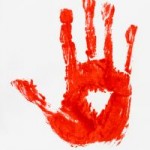December 24th, 2010 by DrRob in Better Health Network, Opinion
No Comments »

 Every day I go to work and spend time with suffering people. They come to me for help and for comfort. They open up to me with problems that they would not tell anyone else. They put trust in me — even if I am not able to fix their problems. I serve as a source of healing, but I also am a source of hope.
Every day I go to work and spend time with suffering people. They come to me for help and for comfort. They open up to me with problems that they would not tell anyone else. They put trust in me — even if I am not able to fix their problems. I serve as a source of healing, but I also am a source of hope.
Christmas is a moving season for many of the same reasons. No, I am not talking about the giving of gifts or the time spent with family. I am not talking about traditions, church services, or singing carols. I am not even talking about what many see as thereal meaning of Christmas: Mary, Joseph, shepherds, wise men, and baby Jesus. The Christmas story most of us see in pictures or read about in story books is a far cry from the Biblical account. The story we see and hear is sanctified, clean, and safe.
Before I go on, I want to assure my readers that I am in no way trying to persuade them to become Christians. I am a Christian, but whether or not you believe the actual truth of the story, there is much to be learned from it. I find it terribly hard to see the real Christmas story here in a country where the season is filled with so much else — much of it very good. It is far easier to just be happy with family, friends, giving gifts, singing songs, and maybe even going to church, than it is to contemplate the Christmas story. I think the Christians in our culture have gotten way off base on this — much to our shame.
Christmas is not about prosperity and comfort. It is about help to the hopeless. Read more »
*This blog post was originally published at Musings of a Distractible Mind*
December 14th, 2010 by DrCharles in Better Health Network, Medical Art, True Stories
No Comments »

 I’m diligently writing a detailed note in the patient’s chart as he speaks of his multiple concerns — severe depression, headaches, and dizziness. I’m not making good eye contact. Often this is effective because I can resist the allure of passively following his narrative to its own diagnostic suspicions. Instead I can record his intuitive guesses without persuasion, formulating my own independent ideas even as I value his. Except that as I write in his chart I notice streaks of red blood appearing among the black script. Am I hallucinating? Am I capable of making paper bleed? Am I, the doctor, bleeding?
I’m diligently writing a detailed note in the patient’s chart as he speaks of his multiple concerns — severe depression, headaches, and dizziness. I’m not making good eye contact. Often this is effective because I can resist the allure of passively following his narrative to its own diagnostic suspicions. Instead I can record his intuitive guesses without persuasion, formulating my own independent ideas even as I value his. Except that as I write in his chart I notice streaks of red blood appearing among the black script. Am I hallucinating? Am I capable of making paper bleed? Am I, the doctor, bleeding?
With closer inspection I notice three small cuts on my chapped knuckles and fingers, products of the incessant and obsessive handwashing compelled by modern medicine. We are obliged to wash our hands before and after each patient contact, which leads to about 60 hand washings per day. In the dry winter air this can become punishing to the integrity of the skin barrier.
I apologize to the patient for marring his chart, yet it almost seems symbolic — physician blood spilled upon a script of human affliction. I know I should tear the page out of his chart and write a clean new one, yet the scrawls of black ink and stripes of red blood look like art. It is a poem, punctuated with living iron and crimson flourish. Despite having made poor eye contact in an attempt to distance and strengthen my consideration of his symptoms, ironically I see the commonality of our bleeding.
*This blog post was originally published at The Examining Room of Dr. Charles*
 Every day I go to work and spend time with suffering people. They come to me for help and for comfort. They open up to me with problems that they would not tell anyone else. They put trust in me — even if I am not able to fix their problems. I serve as a source of healing, but I also am a source of hope.
Every day I go to work and spend time with suffering people. They come to me for help and for comfort. They open up to me with problems that they would not tell anyone else. They put trust in me — even if I am not able to fix their problems. I serve as a source of healing, but I also am a source of hope.












